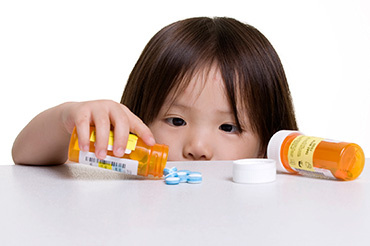Overview Of Poisonings
Poisoning occurs when a harmful substance enters the body, either through ingestion, inhalation, or absorption, and causes damage to organs or systems. It can result from exposure to chemicals, plants, medications, or toxins. Symptoms vary depending on the type of poison but may include nausea, vomiting, confusion, difficulty breathing, and loss of consciousness. Immediate medical attention is often necessary to manage poisoning and prevent severe damage or death.
Symptoms of Poisonings
- Symptoms of poisoning depend on the substance involved but can include gastrointestinal distress (nausea, vomiting, diarrhea), dizziness, confusion, sweating, seizures, difficulty breathing, and loss of consciousness. In severe cases, poisoning can lead to organ failure, coma, or death.
Causes of Poisonings
- Poisonings can be caused by a variety of substances, including household chemicals, pesticides, drugs (both prescription and recreational), carbon monoxide, poisonous plants, and contaminated food. Accidental poisoning is common, but intentional poisoning or overdose can also occur.
Risk Factors of Poisonings
- Risk factors for poisoning include young children (who are more likely to ingest harmful substances), individuals with a history of substance abuse, and those working with or exposed to hazardous chemicals. Mental health issues, such as depression or suicidal tendencies, can also increase the risk of intentional poisoning.
Prevention of Poisonings
- Preventing poisoning involves safe storage of household chemicals, medications, and toxic substances away from children and pets. It also includes proper labeling, safe handling procedures in workplaces, and educating people about the dangers of toxic substances. Limiting the use of harmful substances and monitoring food safety are also important preventive measures.
Prognosis of Poisonings
- The prognosis for poisoning varies based on the type of poison, the amount ingested, and how quickly treatment is administered. Early intervention generally leads to a better outcome. Some poisons, like carbon monoxide, can cause long-term damage, while others may be cleared from the body with no lasting effects.
Complications of Poisonings
- Complications from poisoning can include organ damage (particularly to the liver, kidneys, or brain), respiratory failure, seizures, and long-term neurological issues. In extreme cases, poisoning can result in death. Delayed treatment or inadequate care increases the risk of severe complications.
Related Diseases of Poisonings
- Related conditions include drug overdoses, alcohol poisoning, foodborne illnesses, and environmental exposure to toxins. Certain chronic diseases, such as liver disease, can also complicate poisoning by affecting the body's ability to detoxify harmful substances.
Treatment of Poisonings
Treatment depends on the type of poisoning. It may include activated charcoal to absorb toxins, intravenous fluids to flush out toxins, medications to counteract poison effects, or antidotes specific to certain poisons. In severe cases, hospitalization and supportive care (such as mechanical ventilation or dialysis) may be required.
Generics For Poisonings
Our administration and support staff all have exceptional people skills and trained to assist you with all medical enquiries.

Activated Charcoal
Activated Charcoal

Activated Charcoal
Activated Charcoal


